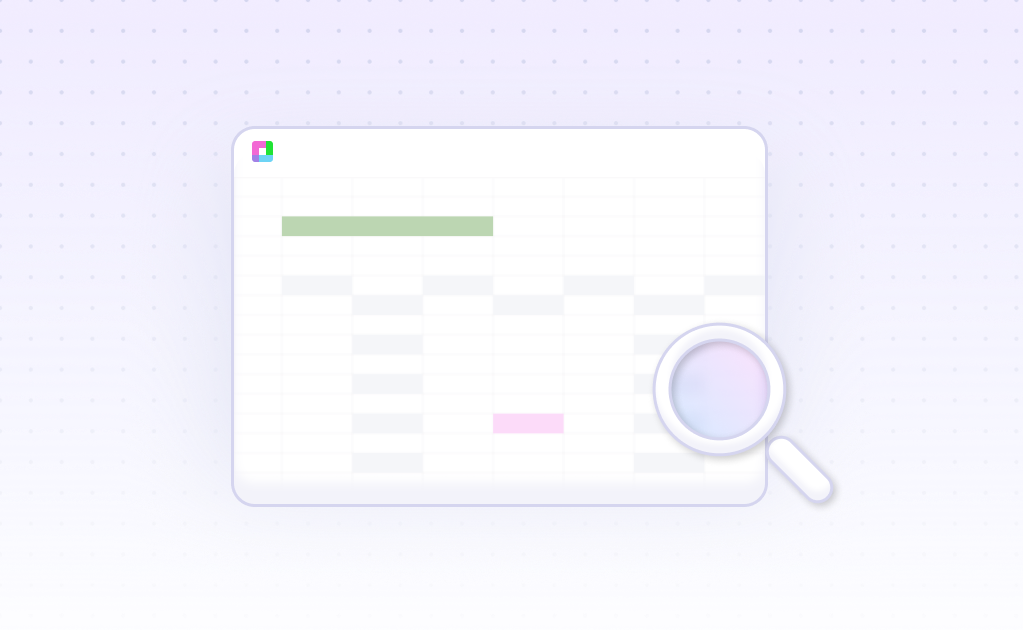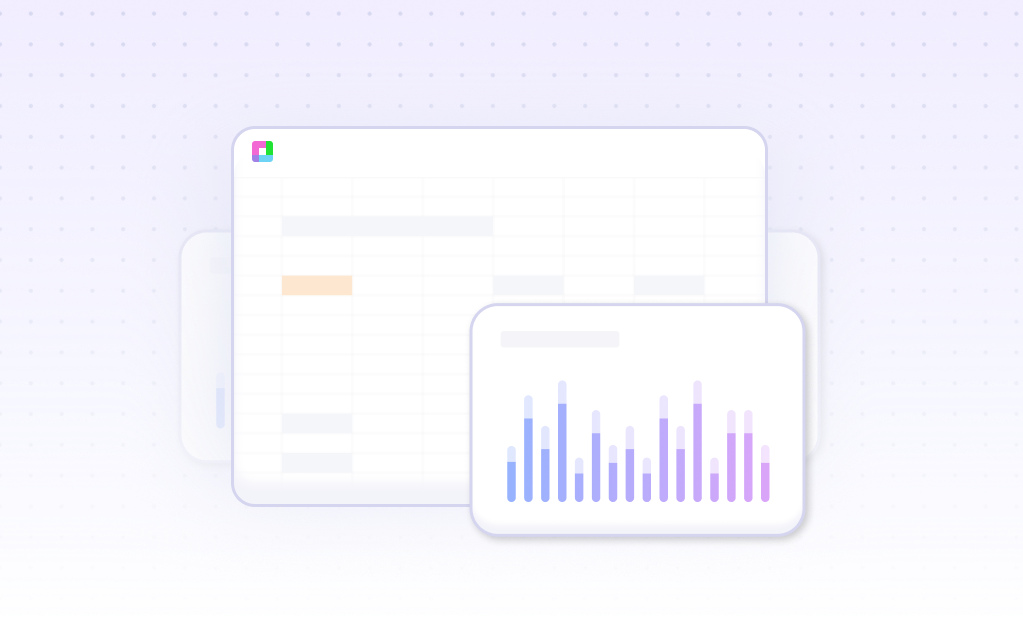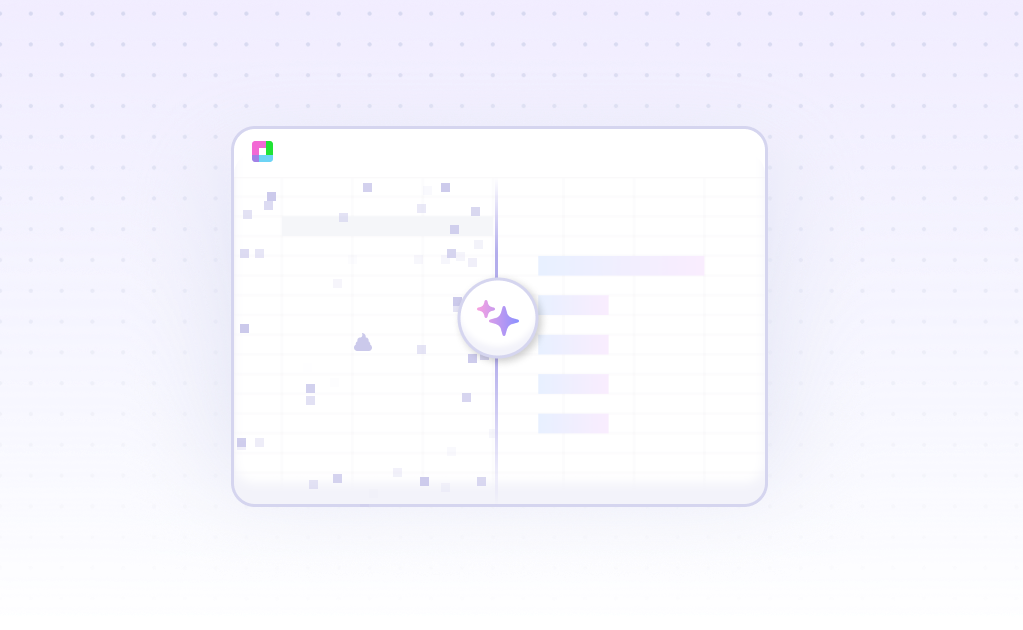
Learning management systems generate vast amounts of data daily - student logins, assignment submissions, quiz scores, discussion participation, and course completion rates. But raw LMS data tells only part of the story. The real magic happens when you transform this data into actionable insights that drive educational excellence.
Whether you're an academic administrator tracking institutional performance, an instructional designer optimizing course effectiveness, or an education researcher studying learning patterns, Sourcetable turns your LMS data chaos into crystal-clear intelligence.
Why Learning Management System Analysis Matters
Modern education institutions generate terabytes of learning data. Here's why analyzing it systematically transforms educational outcomes:
Student Success Prediction
Identify at-risk students early through engagement patterns, assignment submission trends, and assessment performance analytics.
Course Optimization
Discover which course materials drive engagement, when students struggle most, and how to improve learning pathways.
Resource Allocation
Make data-driven decisions about staffing, technology investments, and curriculum development based on actual usage patterns.
Institutional Performance
Track key performance indicators across departments, programs, and campuses to identify best practices and improvement opportunities.
Essential LMS Metrics to Track
Not all LMS data points are created equal. Focus on these high-impact metrics that directly correlate with educational success:
Student Engagement Indicators
Academic Performance Metrics
Institutional Efficiency Measures
Real-World LMS Analysis Examples
See how education professionals use LMS analysis to drive meaningful improvements:
Try for freeStep-by-Step LMS Analysis Process
Transform your raw LMS data into actionable insights with this systematic approach:
Try for freeAdvanced LMS Analysis Techniques
Beyond basic reporting, sophisticated LMS analysis employs advanced techniques that reveal deeper insights into learning patterns and institutional effectiveness:
Cohort Analysis for Student Success
Track student groups over time to understand progression patterns. Compare cohorts by admission year, program type, or demographic characteristics. For example, analyze how first-generation college students perform differently across various course delivery methods, or track international student adaptation patterns throughout their first academic year.
Learning Path Optimization
Map student navigation patterns through course content to identify optimal learning sequences. Use clickstream analysis to discover which content orders lead to better comprehension and retention. This technique has helped institutions redesign course structures, resulting in 25% improvement in concept mastery rates.
Predictive Analytics for Resource Planning
Forecast future enrollment demands, technology needs, and staffing requirements based on historical trends and external factors. Machine learning models can predict course popularity, optimal class sizes, and peak system usage periods with 90%+ accuracy.
Social Network Analysis
Analyze collaboration patterns in discussion forums, group projects, and peer interactions. Identify influential students who drive engagement, isolated learners who need support, and optimal group compositions for collaborative learning.
Overcoming LMS Analysis Challenges
LMS analysis isn't without its hurdles. Here's how to navigate the most common obstacles education professionals face:
Data Privacy and FERPA Compliance
Educational data requires strict privacy protection. Implement anonymization techniques, secure data handling procedures, and ensure all analysis complies with FERPA regulations. Use aggregated data when possible and establish clear data governance policies that protect student privacy while enabling meaningful analysis.
Multiple System Integration
Most institutions use multiple systems - LMS, SIS, library systems, and third-party tools. Data integration becomes complex when dealing with different formats, update schedules, and access permissions. Sourcetable's AI handles these integration challenges automatically, creating unified views across disparate systems.
Faculty Buy-in and Change Management
Successful LMS analysis requires faculty participation and understanding. Provide clear demonstrations of how analytics improve teaching effectiveness rather than create additional burden. Show concrete examples of how data insights lead to better student outcomes and reduced administrative tasks.
Interpreting Complex Educational Data
Educational metrics often have multiple contributing factors. A student's low engagement might reflect personal circumstances, technology barriers, or course design issues. Develop nuanced interpretation frameworks that consider context and avoid oversimplified conclusions.
Learning Management System Analysis FAQ
How quickly can I see results from LMS analysis?
Basic insights appear within hours of connecting your data sources. Meaningful patterns typically emerge within 2-3 weeks as you accumulate sufficient data points. Predictive models become more accurate after analyzing a full academic term's worth of data.
What LMS platforms does Sourcetable support?
Sourcetable integrates with all major LMS platforms including Canvas, Blackboard, Moodle, D2L Brightspace, Schoology, and Google Classroom. We also support custom LMS implementations through API connections and CSV imports.
How do I ensure student privacy while conducting analysis?
Sourcetable includes built-in privacy protection features including data anonymization, FERPA compliance tools, and secure data handling protocols. You can conduct meaningful analysis using aggregated and anonymized data that protects individual student identities.
Can I analyze data across multiple academic terms or years?
Absolutely. Historical analysis across multiple terms reveals long-term trends, seasonal patterns, and longitudinal student success factors. Sourcetable automatically handles date ranges and term comparisons, making multi-year analysis straightforward.
What training is required for faculty and staff?
Sourcetable is designed for education professionals, not data scientists. Most users become proficient within 1-2 hours of guided training. We provide education-specific templates, tutorials, and support resources tailored to academic workflows.
How does LMS analysis improve student outcomes?
Analysis enables early intervention for struggling students, optimization of course content and pacing, personalized learning recommendations, and identification of successful teaching practices. Institutions typically see 10-25% improvements in retention and satisfaction metrics.
Can I create automated reports for different stakeholders?
Yes. Set up automated dashboards for administrators, course-level reports for faculty, and student progress summaries for advisors. Reports can be scheduled daily, weekly, or monthly, and customized for each audience's specific needs and permissions.
What about analyzing blended or hybrid learning environments?
Sourcetable excels at analyzing complex learning environments that combine online and in-person elements. Integrate LMS data with attendance systems, classroom response tools, and assessment platforms for comprehensive hybrid learning analysis.





